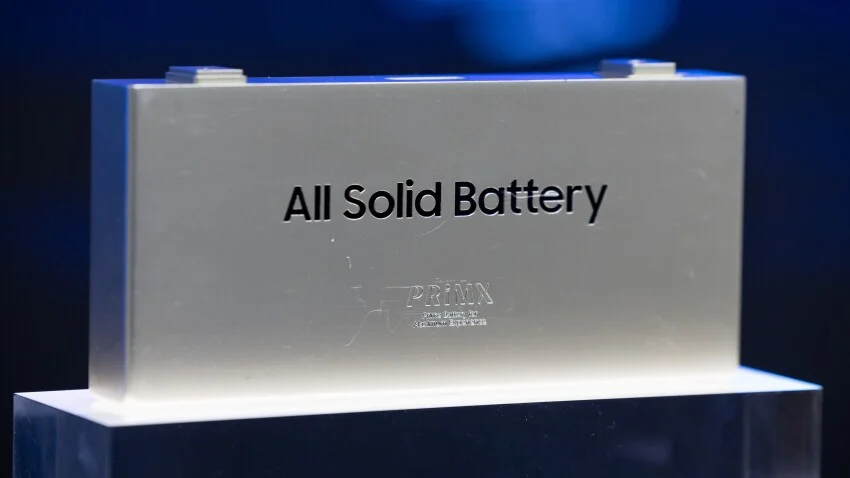Samsung’s latest solid-state battery technology will power up premium EVs first, giving them up to 621 miles of range.
The new batteries—which promise to improve vehicle range, decrease charging times, and eliminate risk of battery fires—could go into mass production as soon as 2027. Multiple automakers have been reportedly testing samples. Samsung did not list any by name but it’s worked with Hyundai, Stellantis, and General Motors, among others.
“We supplied samples to customers from the end of last year to the beginning of this year and are receiving positive feedback,” Samsung SDI VP Koh Joo-young said at SNE Battery Day 2024 in Seoul, according to Korean outlet The Elec and translated by Google.
Perhaps unsurprisingly, the batteries won’t be cheap. They will initially go in “super premium EVs” and will offer 900 to 1,000 kilometers (559-621 miles) of range and improved safety.
“All-solid-state batteries can increase safety by changing liquid to solid, and when made into the same pack (as existing products), the weight is reduced and the space taken up is smaller, which can lead to a cost reduction in the vehicle itself, so automakers are interested in them,” Joo-young said.
The company is also working on another type of battery chemistry for its high-end customers, called high-nickel NCA, which has a high nickel content and therefore increased energy capacity, according to Sumitomo Metal Mining.
For the entry-level segment, Samsung will offer a lower-cost “semi-solid-state” battery, similar to Chinese EV maker Nio. It is also working on LFP and mid-nickel batteries, which contain less nickel, making them cheaper.
Samsung’s presentation also reiterated previously announced plans to create batteries that can charge in nine minutes and last 20 years by 2029.
Competing battery maker LG Energy also presented at the conference. LG is one of Tesla’s battery suppliers and one of the largest in the world. It plans to mass produce solid-state batteries a little later than Samsung, by 2030, also starting with premium EVs.

